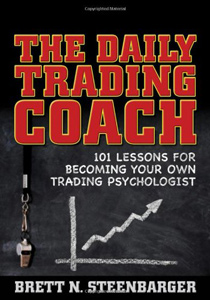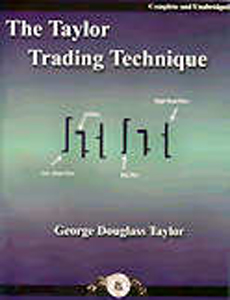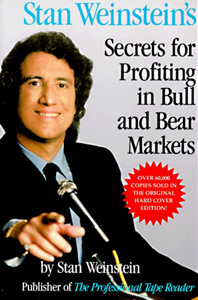Calling all Real Estate Property Bargain Hunters to Sydney
Further Reading
Sydney real estate property prices have fallen 10 per cent since the boom ended in late 2003 - and by 2.3 per cent in the last quarter - a Bureau of Statistics survey has revealed, suggesting the market slump is deeper, more protracted and from a lower peak than previously thought.
The downturn is creating opportunities for potential first-home buyers and bargain hunters, but a seller who bought a property in the past three years is likely to lose money if forced to sell, after stamp duty and real estate costs.
Strong capital gains for property investors are a long way off, according to some analysts. Access Economics has used economic modelling to predict Sydney house prices will crawl higher at an average annual rate of just 1.9 per cent until 2009, well below the current inflation rate of 3 per cent.
And Access's director, Chris Richardson, estimates house prices are still overvalued by 12 to 15 per cent. "This is a very big house price hang-over, not a little one," he said.
Access predicts the annual average increase between now and 2015 will be 3.2 per cent, meaning house prices will show little gain for a decade once inflation is taken into account.
The figures also show the slide that began in Sydney and Melbourne has spread across the nation, with five out of the eight capital cities recording price falls in the September quarter.
BIS Shrapnel's property specialist, Robert Mellor, said people who invested in property in the past few years might have to wait a further six or seven years for a capital gain.
"For those who invested in 2003, the shortest time horizon would be 2011 or 2012 before they start to see their investment has been worthwhile," he said.
The figures follow a report by the Organisation for Economic Co-operation and Development showing the gap between the cost of buying and renting a house in Australia was the biggest in the world last year. Australia's house price-to-rent ratio was 51.8 per cent, way ahead of Britain on 32.8 per cent and the Netherlands on 20.4 per cent, highlighting the poor returns on residential property.
Gross rental yields in Sydney were just 2.5 per cent, Mr Richardson said.
The Bureau of Statistics figures showed house prices fell 1 per cent nationally and 2.3 per cent in Sydney in the September quarter. Only Perth and Darwin - boosted by a once-in-a-generation resources boom - are still showing strong growth.
Analysts said Sydney was suffering disproportionately now because it was home to the greatest speculative mania during the boom.
"We still think property is overvalued in Sydney and NSW generally and they are going to suffer the worst of the correction, because that's where the most investor speculation has been and where the punters have piled in in the last few years," said JP Morgan economist Jarrod Kerr.
But real estate agents and industry analysts across Sydney have said hesitant buyers and a year of falling prices have forced some vendors to discount their properties, resulting in many bargains. In October, Brook and Victoria Blackman bought a five-bedroom waterfront house at Newport for $610,000 after it was originally put on the market for $675,000.
"The house had been on the market for 12 months and we thought we could push the price down, so we went into negotiations with the owner and knocked it down," Mr Blackman, 32, said.
The state manager of Century 21, David Colman, said the best value for money was in areas of high density in the southern and western suburbs, while the chief operating officer of Ray White NSW, Peter Matthews, said properties along freeways such as the M2 and M7 were good value.
In a further sign of the property market's weakness, private house building approvals nationwide dropped to a four-year low in October, the Bureau of Statistics said. Approvals to build homes or units in NSW have fallen by 22 per cent in the past eight months.
- How to Trade Forex and Gold Options
- How to Trade the Gold Price and Profit!
- Forex Trading the EUR/USD Pair € EURO and $ US Dollar
- How to Trade Stock Market Indices S&P500
- How to Trade Crude Oil
- Forex Trading Psychology
- What Are Broker Recommendations?
- Free Tickets to Trading & Investing Seminar & Expo ($18) Brisbane 2013
- Stock Calc App
- All About Warrants
- Introduction to Exchange Traded Funds
- Introduction to Exchange Traded Funds: Features
- Introduction to Exchange Traded Funds: Domestic ETFs
- Introduction to Exchange Traded Funds: International ETFs
- Exchange Traded Commodities
- Australian Stock Scan
- Australian Online Share Trading
- List of Trading Books
- Interesting Thoughts about the Australian Dollar
- What's the Meaning of Hawkish?
- Do You Know How To Use the P/E Ratio
- Trading, Religion and Politics - Do They Have Anything in Common?
- Shares that are Volatile that Double and Half in the Short Term
- Telstra (TLS) T3
- Margin Call by E-mail
- The Cost of Holding a Position
- Lack of Disclosure: Compensation from ASX Listed Company
- Unrealistic Returns and Benchmarks
- CMC Markets Down
- Quality versus Quantity Forex Trading
- Woolworths 1H Sales $30.7bn up 3.2%
Date added 31-01-2013 - ASIC Fines CommBank's CommSec
Date added 25-09-2012 - Industry Super Network Calls to Ban High Frequency Trading (HFT)
Date added 22-09-2012 - NAB Launches Online Share Trading Platform
Date added 19-09-2012 - Reserve Bank of Australia Says 23 Countries Holding AUD
Date added 18-09-2012 - Australia Post Digital Mailbox
Date added 10-09-2012 - Winners and Losers of Trading for Week 2
Date added 16-01-2012 - 2012's First Week of the Best and Worst Traded Stocks
Date added 09-01-2012 - 2011's Last Best and Worst Traded Stocks
Date added 05-01-2012 - Best and Worst Pre-Christmas Traded Stocks
Date added 30-12-2011 - Trading Winners and Losers for Dec. 12-16
Date added 19-12-2011 - Best and Worst Traded Stocks for Dec. 5-9
Date added 13-12-2011 - Top 3 Best and Worst Traded Stocks
Date added 05-12-2011 - ASX Glitch Trading Halt
Date added 27-10-2011 - Worst Trade Stocks (and the Best)
Date added 06-08-2011
Top 150 Public Companies Listed on the Australian Stockmarket as at 29/05/2009
- BHP Billiton
- Westpac Banking Corporation (WBC)
- Commonwealth Bank of Australia (CBA)
- National Australia Bank (NAB)
- Telstra (TLS)
- ANZ
- News Corporation (NWS)
- Woolworths Limited(WOW)
- Woodside Petroleum Limited (WPL)
- Rio Tinto
- Westfield Group (WDC)
- Westfarmers Limited (WES)
- QBE Insurance
- CSL
- Newcrest Mining Limited (NCM)
- Origin Energy Limited (ORG)
- Santos Limited (STO)
- AMP Limited (AMP)
- Macquarie Group (MQG)
- Foster’s Group Limited (FGL)




